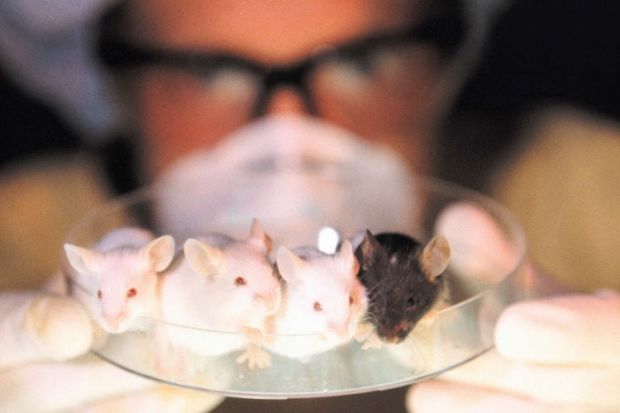Imperial commissioned an independent report into its animal research after the British Union for the Abolition of Vivisection infiltrated its facilities earlier this year, leading to allegations in The Sunday Times of mistreatment of animals.
The report was drawn up by a committee of experts in animal experimentation and welfare chaired by Steve Brown, director of the Medical Research Council’s Mammalian Genetics Unit at Harwell.
Professor Brown said the review committee, which drew up its own terms of reference, decided to advise Imperial on how it could attain a “leadership position” regarding the welfare and the replacement, refinement and reduction of animals in research (known as the three Rs) “commensurate with its status as world-leading university”.
He said the investigation had not found a “culture where people didn’t care” about animal welfare and commended Imperial’s animal facilities and standards of animal husbandry. But the institution “didn’t have adequate operational leadership, management, training, supervisory and ethical review systems” to “really fulfil” the animal house staff’s aspirations to “push forward animal welfare and, in particular, the 3Rs to the highest standards”.
The report, which includes 33 recommendations, found that Imperial’s ethical review processes did not provide a forum to bring scientists together with animal house staff, technicians and statisticians to discuss improvements.
It found that the animal house’s reliance on agency staff minimised contact between scientists and permanent staff with what review committee member Neil Yates, director of the biosupport unit at the University of Nottingham, called the “quality and expertise” to “truly engage with [them] as equals”.
Although the review panel only had the time and remit to investigate Imperial, Professor Brown said it had set out standards to which all institutions should be aspiring, since failure to live up to them increased the risk of unnecessary animal suffering.
“A lot of recommendations will have resonance across the country - though whether they should be enshrined under the Animals Act is [something] for a further discussion - [which] should happen,” he added.
In a statement Imperial says it has accepted all of the recommendations, which also include appointing a senior staff member to oversee animal welfare strategy. It will draw up an “action plan” by next month, “invest in staffing and leadership” and publish an annual report on its animal research.
Tony Peatfield, director of corporate affairs at the MRC, said the research council would be considering “whether there are any lessons for the animal facilities for which the MRC is responsible”.
A Home Office investigation into the BUAV’s specific allegations is expected to be concluded early in the new year.
Register to continue
Why register?
- Registration is free and only takes a moment
- Once registered, you can read 3 articles a month
- Sign up for our newsletter
Subscribe
Or subscribe for unlimited access to:
- Unlimited access to news, views, insights & reviews
- Digital editions
- Digital access to THE’s university and college rankings analysis
Already registered or a current subscriber? Login




